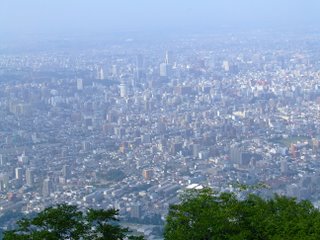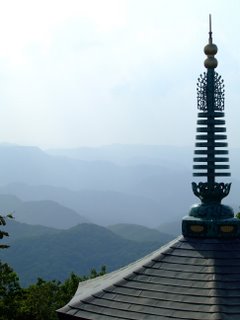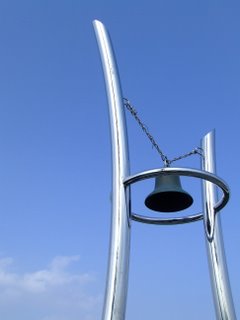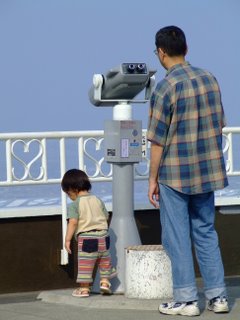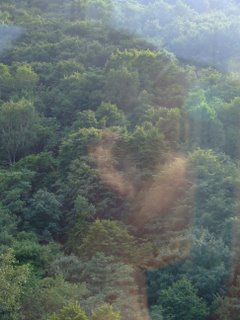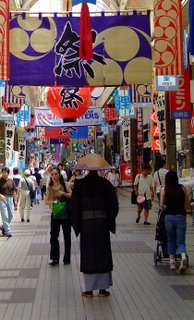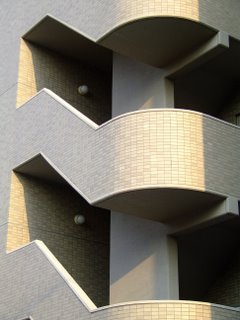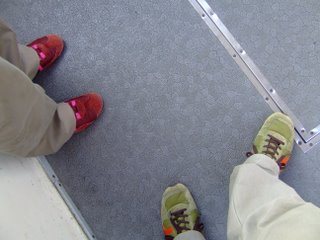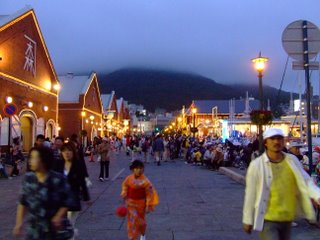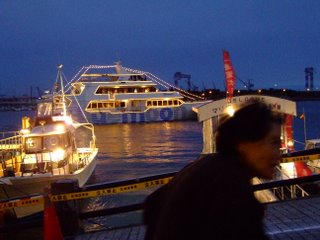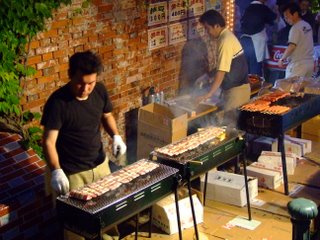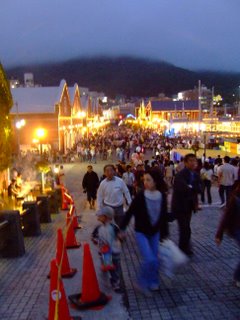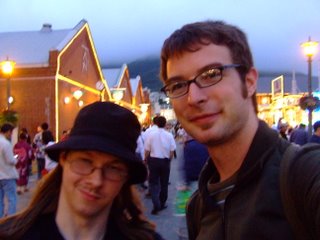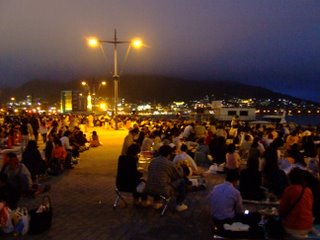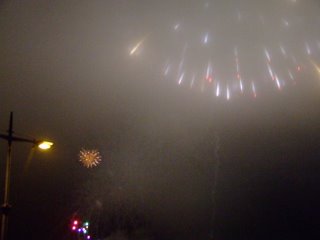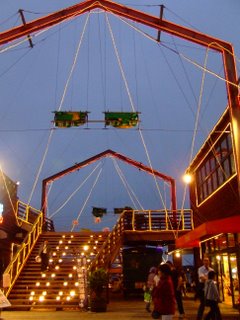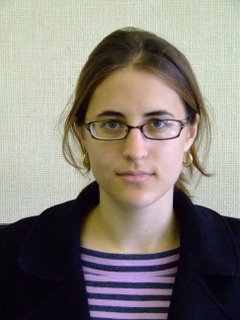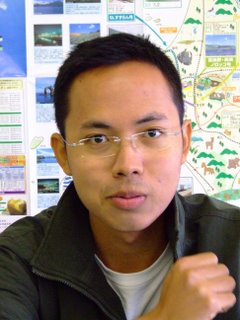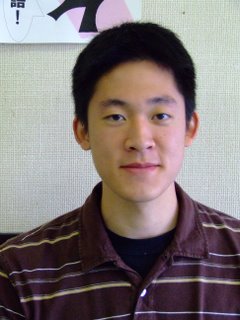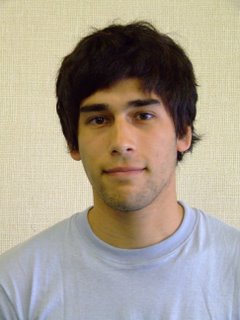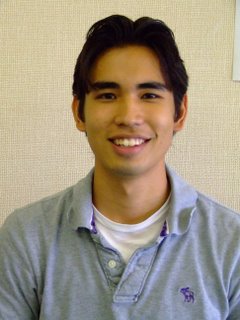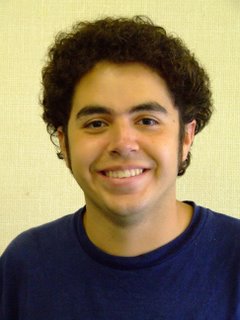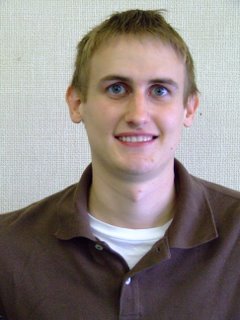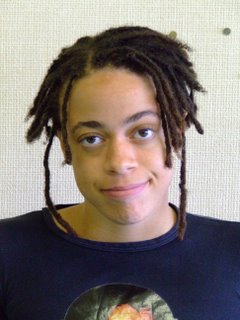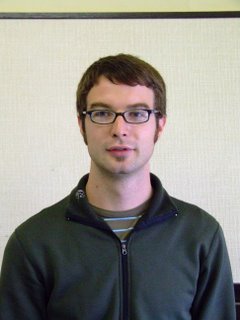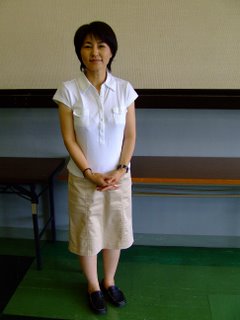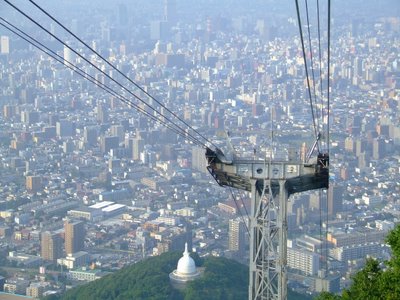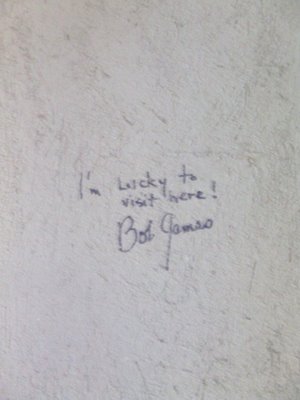Going back for seconds
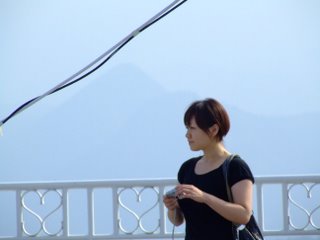
The first time in Sapporo was wonderful. Partly because I had just finished the first semester of the summer program, and partly because it was also the first chance to get out of Hakodate and explore around Hokkaido a bit. Unfortunately the time in Sapporo was so short I missed getting to visit a good friend named Junko. A little background - Junko is a friend of my brother's, and I met her when my family went to visit my brother in Tokyo about 8 years ago. I got to spend quite a bit of time with Junko during that visit, and we became good friends. Ever since that time we've had communication in spurts, but have managed to keep up with how each other's lives are unfolding. Now Junko is living in Sapporo in her parent's Buddhist temple. Working and living in a temple combined with the chanting and meditating that come along with that arrangement, has created an even softer and calmer color to Junko's being than I remembered 8 years ago. Those reading this that have had the opportunity to spend time around meditation practitioners can attest to this - and lately evidence of the positive effects meditation has on the human brain has been qualitatively documented in an scientific/academic setting. That research is quite exciting - and was even featured in an issue of Time magazine about 2 or 3 years ago. For an introductory article that provides a few sources for further reading, click here.
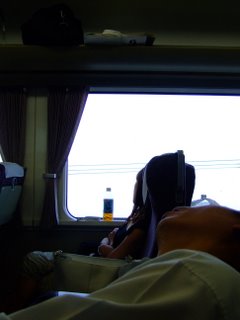 There is something in travelling alone that creates a condition of openness that I find promotes interesting encounters with interesting people. Sitting next to me on the train to Sapporo was this man. After a short nap, he saw me studying Japanese and we began speaking. After telling me about the beautiful places I should visit someday in Hokkaido, he explained he worked as an engineer in a safety consulting firm. His work focused on the reactor wall's interior shielding and the relative strengths of different materials used to prevent radation from leaking. I learned that there are three nuclear reactors clustered to the north west of Sapporo that are used almost entirely to supply Sapporo's energy. Despite Nuclear Energy's defficiencies, I would prefer to see Nuclear Energy as an energy source over the use of fossil fuels. It's interesting to me how strongly people react to the threats of nuclear energy. It seems to me that the risk perception of nuclear energy is highly inflated - most likely due to a few key incidents - whereas the risk perception for fossil fuels is misunderstood. There is a feeling of safety that comes along with tradition, and the tradition of using fossil fuels I think forces an acceptance of their use. Aside from the carbon dioxide and pollution issues that come along with the burning of fossil fuels are a myriad of other issues related to their extraction, their transport, their storage and the stability of the infrastructure needed to maintain a fossil fuel economy. If you pay attention to the newspaper, you are bound to read a story about leaking natural gas wells in the backyards of homes, or leaking gasoline storage tanks. Both of these are very serious problems that threaten ground water to an extent that harms more people over a longer span of time than any nuclear accident has.
There is something in travelling alone that creates a condition of openness that I find promotes interesting encounters with interesting people. Sitting next to me on the train to Sapporo was this man. After a short nap, he saw me studying Japanese and we began speaking. After telling me about the beautiful places I should visit someday in Hokkaido, he explained he worked as an engineer in a safety consulting firm. His work focused on the reactor wall's interior shielding and the relative strengths of different materials used to prevent radation from leaking. I learned that there are three nuclear reactors clustered to the north west of Sapporo that are used almost entirely to supply Sapporo's energy. Despite Nuclear Energy's defficiencies, I would prefer to see Nuclear Energy as an energy source over the use of fossil fuels. It's interesting to me how strongly people react to the threats of nuclear energy. It seems to me that the risk perception of nuclear energy is highly inflated - most likely due to a few key incidents - whereas the risk perception for fossil fuels is misunderstood. There is a feeling of safety that comes along with tradition, and the tradition of using fossil fuels I think forces an acceptance of their use. Aside from the carbon dioxide and pollution issues that come along with the burning of fossil fuels are a myriad of other issues related to their extraction, their transport, their storage and the stability of the infrastructure needed to maintain a fossil fuel economy. If you pay attention to the newspaper, you are bound to read a story about leaking natural gas wells in the backyards of homes, or leaking gasoline storage tanks. Both of these are very serious problems that threaten ground water to an extent that harms more people over a longer span of time than any nuclear accident has. 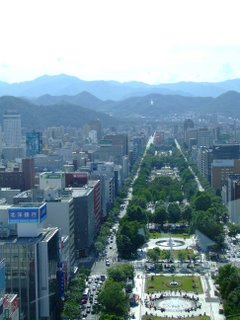 The weekend I visited Sapporo was a bit busy for Junko, but it was the last chance I had to come. Junko was working in a symposium on American political science hosted by Hokkaido University. So, during the days while Junko was at work I would walk around the streets. I spent a good amount of time just relaxing in the big park that defines Sapporo's city center. Because this weekend also coincided with festivals in Sapporo, I was not alone in sitting in the park with a bag of food from a combini for lunch, and a large can of Sapporo beer. Really, when it gets right down to it, it's hard to imagine a finer time anywhere, than sitting in the shade of a large line of trees, with an endless passing parade of new sights and sounds, some amazingly cheap and tasty food and a cold beer. I can think only of one addition to that occassion that could enhance its feel, to sit side by side a lover or an old friend and make remarks about the past or the clouds, or just sit and enjoy together the feeling of being.
The weekend I visited Sapporo was a bit busy for Junko, but it was the last chance I had to come. Junko was working in a symposium on American political science hosted by Hokkaido University. So, during the days while Junko was at work I would walk around the streets. I spent a good amount of time just relaxing in the big park that defines Sapporo's city center. Because this weekend also coincided with festivals in Sapporo, I was not alone in sitting in the park with a bag of food from a combini for lunch, and a large can of Sapporo beer. Really, when it gets right down to it, it's hard to imagine a finer time anywhere, than sitting in the shade of a large line of trees, with an endless passing parade of new sights and sounds, some amazingly cheap and tasty food and a cold beer. I can think only of one addition to that occassion that could enhance its feel, to sit side by side a lover or an old friend and make remarks about the past or the clouds, or just sit and enjoy together the feeling of being.There were alot of interesting little scenes. For some reason I wasn't feeling the photography calling that day, but here are a few pictures from various parts of the parades going through the city.
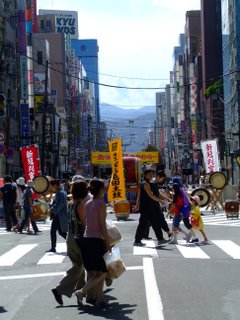
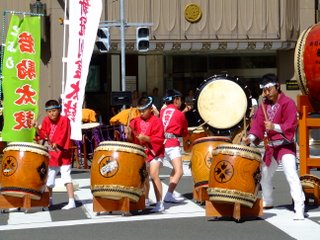

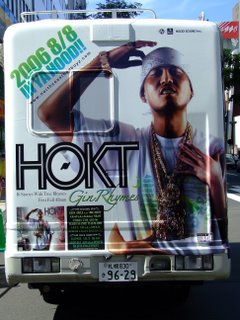
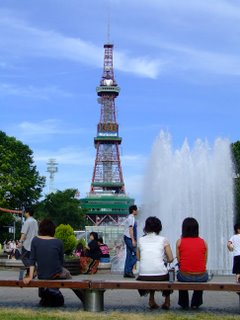 I decided to check out the view of Sapporo from the Sapporo's TV tower (the red tower in the background). When I reached the top there was an interesting fortune telling machine with a miniature Shinto priest doll that said a prayer for me to a Buddhist statue, then a small fortune popped out of the bottom of the machine. I couldn't really understand the fortune though. The view of Sapporo from the TV tower was incredible, but a little later, you can see a picture of Sapporo from Mt. Moiwa, which is a little easier to get a sense of the scale of the city. Because this was a festival weekend there were many people dressed in Yukatas, or summer Kimonos. Men and women both were dressed up, mostly the older generation, but quite a few younger people were dressed in Yukatas too. It was a nice experience to see and feel such a large city celebrating together, and to watch the little children playing in fountains, or eating icecream. It's something so simple, but still amazing.
I decided to check out the view of Sapporo from the Sapporo's TV tower (the red tower in the background). When I reached the top there was an interesting fortune telling machine with a miniature Shinto priest doll that said a prayer for me to a Buddhist statue, then a small fortune popped out of the bottom of the machine. I couldn't really understand the fortune though. The view of Sapporo from the TV tower was incredible, but a little later, you can see a picture of Sapporo from Mt. Moiwa, which is a little easier to get a sense of the scale of the city. Because this was a festival weekend there were many people dressed in Yukatas, or summer Kimonos. Men and women both were dressed up, mostly the older generation, but quite a few younger people were dressed in Yukatas too. It was a nice experience to see and feel such a large city celebrating together, and to watch the little children playing in fountains, or eating icecream. It's something so simple, but still amazing.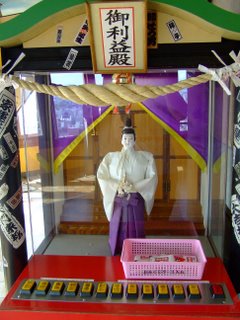
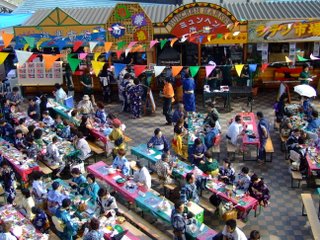
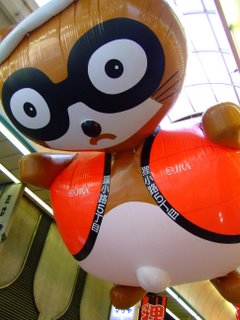
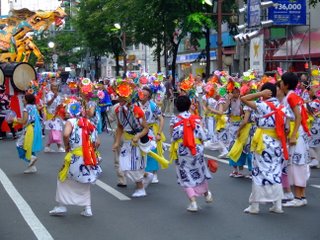
Later that night I happened to be in Susukino, where a night festival with lots of street vendors and a small parade was going on. I sat down next to the grill, and shared a table with a few passing groups of people. One group was this guy, who works as a host. Most people have probably heard about hostess bars in Japan, usually where businessmen go after work and pay for the company of an attractive young girl. There is a female equivalent of this too, where women can go and be entertained by men. The job seems pretty tough - your job doesn't really end when you leave the club. Your favorite customers can call you, and ask you to meet them at a restaurant or coffee shop, and it's in your best interest to do so if you want them to keep coming back to your bar. This guy was fun to talk to because he was very open about what he did, and the woman he was with didn't seem to mind too much that he was talking to me more than he was talking to her. I asked him what he planned to do after he quit working as a host, and he said he wanted to be a sushi chef.
The next few pictures are of Junko's family at her parent's temple. Her niece and nephew, and her mother. Junko's mother was this jolly, intense woman that makes you feel comfortable immediately. She was also having fun saying what English she could. I also really enjoyed their dog, who seemed to be just as moody as a human. Sentience and moodiness go hand in hand I guess.
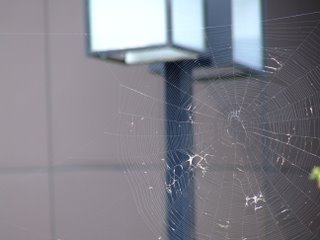

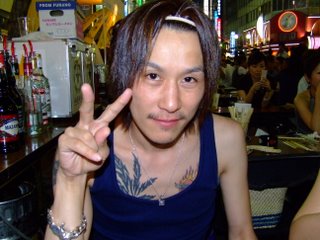
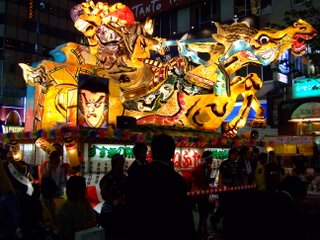
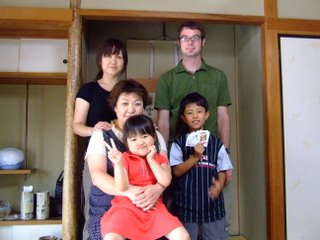
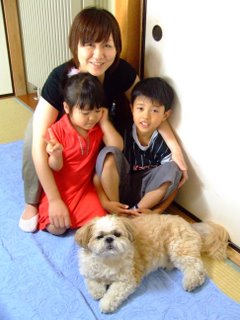
Junko and I took the Mt. Moiwa ropeway and went to the top of Mt. Moiwa, which offers a view overlooking Sapporo city. The view reminds me a little of the view from The Tokyo Metropolitan Government Building in Shinjuku, because all you can see are buildings and concrete stretching off towards the horizon. The main difference between Sapporo and Tokyo is of course size, and with that Sapporo is surrounded by green mountains and lots of forest. Compared to Tokyo's scenery, it's a refreshing mix.
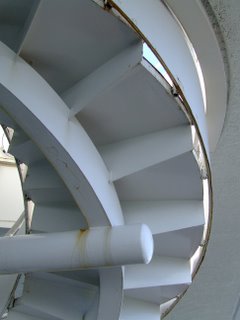
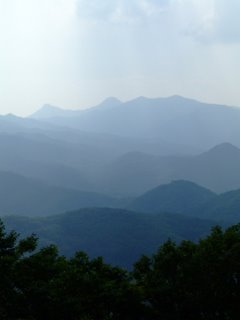
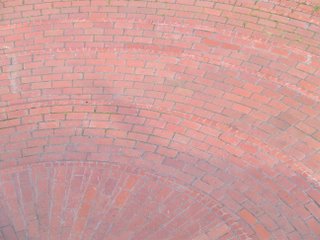
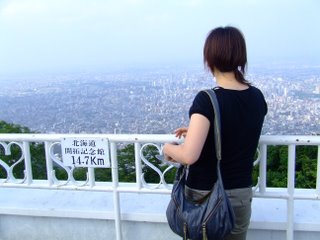
I have to send a big thank you to Junko for meeting me despite the busy schedule, and for inviting me to her parent's temple. It was one of the best weekends I had throughout the summer, and the experiences walking around by myself and meeting and talking with Japanese people also showed me that I was actually learning alot of Japanese. It's always nice to see progress, you know.
Like the picture in an earlier post - I am definately lucky I had the chance to visit this place.
